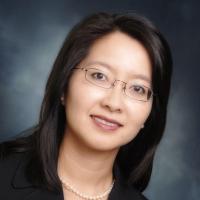Gangsin: 갱신 Korean: refresh, renew, updated Save

“New beginnings are often disguised as painful endings” - Taoist proverb
Remaining status quo requires less effort than making a change. Over the last 20+ years, I have listened to thousands of patients confide their personal stories. Some remained paralyzed in their current state of distress, fearing new situations may be worse. I was one of them, until recently. In this final blog of my trilogy on self-discovery, I reveal my new life.
After leaving my last employment, I took time to breathe and weigh my options for the future. With the children’s college tuition to consider, I needed an income. I had 4 different paths available to me: 1. Join an existing private practice 2. Start my own rheumatology practice 3. Accept a senior position at another academic institution or 4. Cross into industry.
True to my nature as a rheumatologist, I asked many questions and gathered intel from a multitude of sources. One of them was a patient of mine who left her position two decades ago as a professor with an endowed chair and 3 grants to accept a job in the pharmaceutical industry because she was burnt out. She noted it was the best decision she made; she had no regrets. She was able to indulge in her passion for science while having more free time for herself and her family. During her tenure in industry before she retired, she brought several medicines to the market; many are still being used today to improve health outcomes and quality of life for patients. She relayed how she affected many more lives than she would have by staying in academics. She encouraged me to consider going into industry.
For those who may not understand, the impact of going into industry is a major shift in career. When a physician crosses into industry, they no longer have a practice and oftentimes are shunned by their colleagues who believe they have sold out and crossed into the “dark side.” There is an unspoken indictment of doctors who choose industry over patient care; they are perceived to have traded in their morals for greed to sell a drug or device. Program directors shield trainees from people who work for pharmaceutical companies so they cannot be influenced to write for a particular drug. Physicians partnering with industries to advise or help develop new medications or devices, must disclose their relationships when they lecture, serve on national and local committees, or publish papers; this is known as a conflict of interest (COI) disclosure and illuminates if the physician is biased, highlighting a product more favorably because they have a self-interest. Despite necessary collaborations with industries to bring critical medicines to patients, many academics will avoid potential appearances of improprieties by severing ties with physicians who accept employment with a company.
I knew I did not want to leave rheumatology as I still wanted to help patients, but I could not endure a job that would place me in the same situation I had left. The thought of working for a pharmaceutical company became more attractive after speaking to more people working in pharma. Industry is not the big bad wolf most fear would consume the physician’s soul. Without pharmaceutical companies, there would not be any drugs to treat diseases. As an investigator who previously participated in multiple industry-sponsored clinical trials, I found the studies were well run with rigor and integrity by the pharmaceutical company. My patients also benefitted from cutting edge knowledge and being able to access therapeutics not yet available to the public. Am I ready to hang up my stethoscope? Would I lose my friends and colleagues?
As with any difficult life decision, I had to ask my mom; albeit, she did not understand my professional life nor the dynamics at play. With the perfect mom answer, she told me not to worry about what other people think and just do what seems right; then she gave me something to eat. She was right. A month into my role as a senior medical director in Medical Affairs, I found a home.
Medical Affairs is about science, not sales. In my role, I review scientific research protocols, interpret published data and educate scientists, doctors, and patient care organizations about lupus and lupus nephritis. Additionally, I help the internal advocacy team in their partnership with national advocacy groups to remove barriers to care. My job ultimately is to help patients.
The science was more than I imagined; I have time to read journals, listen to great lectures, speak to key opinion leaders, and attend mind expanding conferences. The people are brilliant, each bringing their knowledge and experience to the table. New ideas are exchanged, revised, revisited, and I have opportunities to lend my clinical expertise. My voice mattered. My friends remained my friends and were excited to see me happy. I was glad to have my identity back with my purpose still firmly planted in the “rheum.”.
Join The Discussion
Congratulations on your bright future. As a Korean rheumatology based US family med Resident, I personally like 갱신. But for the fresh new start, I could rather use rebirth 재탄생 or rejuvenation 회춘 for your rheum pharm carrier.










If you are a health practitioner, you may Login/Register to comment.
Due to the nature of these comment forums, only health practitioners are allowed to comment at this time.